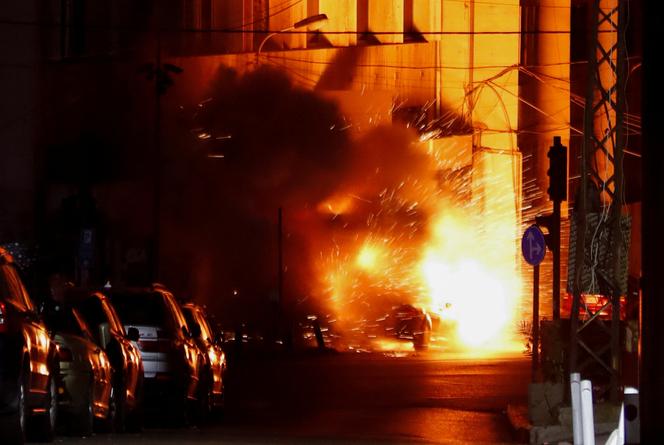


Israel approved a United States-brokered ceasefire agreement with Lebanon's Hezbollah on Tuesday, November 26, 2024, setting the stage for an end to nearly 14 months of fighting linked to the ongoing war in the Gaza Strip.
Israel's security Cabinet approved the ceasefire agreement late Tuesday after it was presented by Prime Minister Benjamin Netanyahu, his office said. US President Joe Biden, speaking in Washington, called the agreement "good news" and said his administration would make a renewed push for a ceasefire in Gaza. The Biden administration spent much of this year trying to broker a ceasefire and hostage release in Gaza but the talks repeatedly sputtered to a halt. Still, any halt to the fighting in Lebanon is expected to reduce the likelihood of war between Israel and Iran, which backs both Hezbollah and Hamas and exchanged direct fire with Israel on two occasions earlier this year.
The ceasefire deal calls for a two-month initial halt in fighting and would require Hezbollah to end its armed presence in a broad swath of southern Lebanon, while Israeli troops would return to their side of the border. Thousands of additional Lebanese troops and UN peacekeepers would deploy in the south, and an international panel headed by the United States would monitor all sides' compliance.
But implementation remains a major question mark. Israel has demanded the right to act should Hezbollah violate its obligations. Lebanese officials have rejected writing that into the proposal.
Biden said Israel reserved the right to quickly resume operations in Lebanon if Hezbollah breaks the terms of the truce, but that the deal "was designed to be a permanent cessation of hostilities." Netanyahu's office said Israel appreciated the US efforts in securing the deal but "reserves the right to act against every threat to its security."
Hezbollah has said it accepts the proposal, but a senior official with the group said Tuesday that it had not seen the agreement in its final form. "After reviewing the agreement signed by the enemy government, we will see if there is a match between what we stated and what was agreed upon by the Lebanese officials," Mahmoud Qamati, deputy chair of Hezbollah's political council, told the Al Jazeera news network. "We want an end to the aggression, of course, but not at the expense of the sovereignty of the state." of Lebanon, he said. "Any violation of sovereignty is refused."
Even as Israeli, US, Lebanese, and international officials have expressed growing optimism over a ceasefire, Israel has continued its campaign in Lebanon, which it says aims to cripple Hezbollah's military capabilities.
An Israeli strike on Tuesday leveled a residential building in the central Beirut district of Basta – the second time in recent days warplanes have hit the crowded area near the city's downtown. At least seven people were killed and 37 wounded, according to Lebanon's Health Ministry. Strikes on Beirut's southern suburbs killed at least one person and wounded 13, it said. Three people were killed in a separate strike in Beirut and three in a strike on a Palestinian refugee camp in southern Lebanon. Lebanese state media said another 10 people were killed in the eastern Baalbek province. Israel says it targets Hezbollah fighters and their infrastructure.
Israel also struck a building in Beirut's bustling commercial district of Hamra for the first time, hitting a site that is around 400 meters (yards) from Lebanon's Central Bank. There were no reports of casualties.
